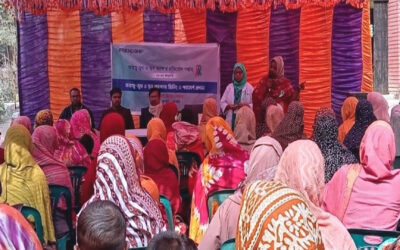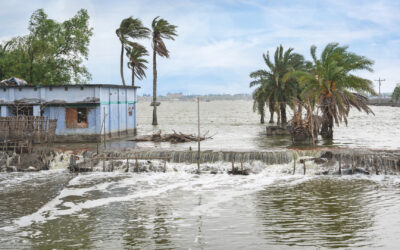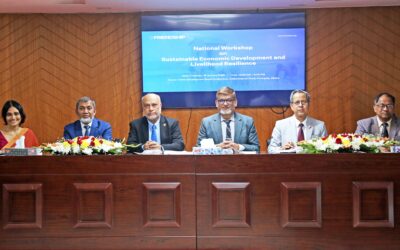Friendship founder speaks at the National Humanitarian Conference in France
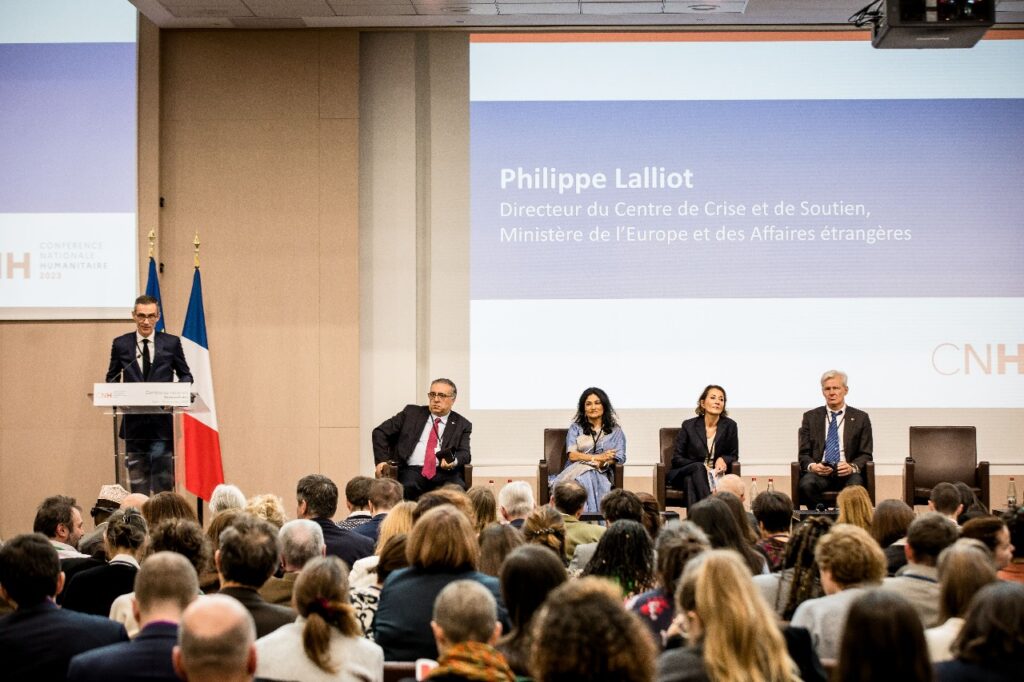
by Raeed Abd-Allah Chowdhury
December 20, 2023
Runa Khan, founder, Friendship spoke at the National Humanitarian Conference, which was organised on December 19, by the Centre de Crise et de Soutien (Crisis and Support Centre), part of the French Ministry of Europe and Foreign Affairs.
The conference presented France’s commitments under its 2023–2027 Humanitarian Strategy. More than 300 international and national actors, members of parliament, journalists, academics, policy makers and business leaders interested in humanitarian issues attended the event. Three round tables discussed the implementation of the 2023-2027 Strategy and the main challenges of humanitarian action.
Addressing her audience along with French President Emmanuele Macron and Catherine Colonna, the French Minister for Europe and Foreign Affairs, Runa Khan spoke of the climate injustice in Bangladesh, a country that produces only 0.56% of the world’s carbon emissions but is seventh most at risk of climate change effects where the rural poor spend USD 2 billion a year to address these effects.
“Adapting our response to the complexity of crises also means recognizing that women and girls are the first victims. In times of war or disaster, they suffer the most severe violence, and their needs in times of reconstruction are just as different. In this respect, protecting women’s rights is a priority for me. It is also a priority in our humanitarian response,” said President Macron.
“Justice and urgent actions in Bangladesh are needed today,” said Runa during her address, “and the responsibility to act is shared by everyone in this room including myself.”
She also spoke about mangroves, and how they are the first natural defence against tidal surges and cyclonic storms in Bangladesh and other parts of the world. In addition, they also absorb salinity, provide a habitat for countless species which in turn form a livelihood source for local communities; and perhaps most importantly sequester seven times more carbon than any other kind of tropical forest. She stressed on the importance of preserving the Sundarbans—the largest mangrove forest in the world, that is in the south of Bangladesh. USD 194,000 per hectare per year may be yielded from the Sundarbans if utilised correctly, which in global terms amounts to USD 2.7 trillion and 65 billion worth of property damage prevented.
Bangladesh is the world’s adaptation solution laboratory
Runa Khan, founder, Friendship
“Today we hear so much about humanitarian crises caused by greed, poverty and war; but so much of it is exacerbated by the climate crisis. It makes people transcend borders and break boundaries, so we must keep this foremost in our mind, that climate makes any other crisis worse,” she said, followed by a plea to global policymakers for solidarity, compassion, empathy, respect, trust and keeping in mind realistic ideas and contexts of climate-induced migration at the micro level, so that it can be scaled to a macro level.
“Even in war, the fundamental rights of every woman, man and child must be protected. This cannot and must not be called into question. In this respect, I would like to pay tribute to the remarkable work of humanitarian organisations, who work at the heart of conflicts and disasters, to help civilians. It is your expertise that often enables us to adapt our diplomatic response and logistical support. It’s you who know the reality on the ground, and that’s why your action is so precious, so effective, and why we will continue to work alongside you, in a relationship of trust, so that we can formulate the humanitarian action best suited to each situation,” said President Macron on the matter.
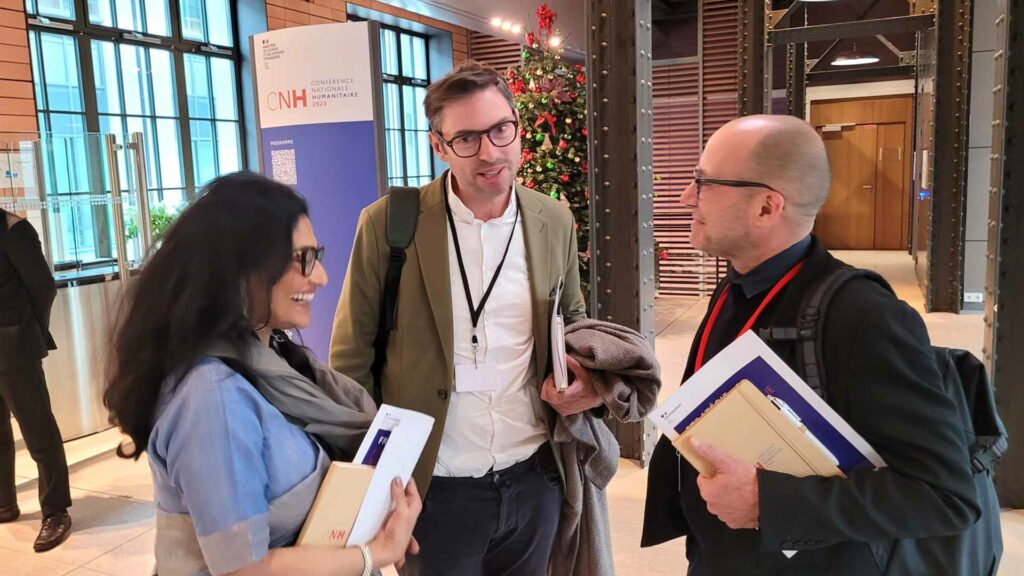
“It’s not only about assistance, but empowering people so that assistance will not be needed. To be able to restart their lives with opportunity, hope, dignity and strength, and have the liberty of choice. This is what we owe to people who contribute nothing to climate change. This is for equality and justice”.


